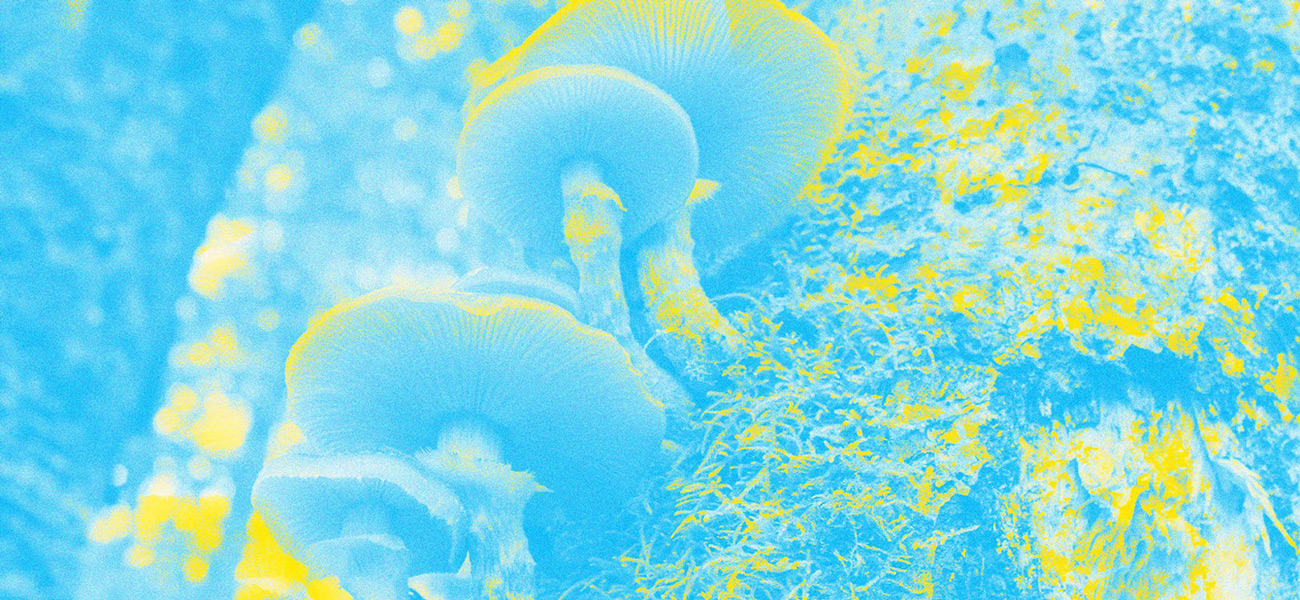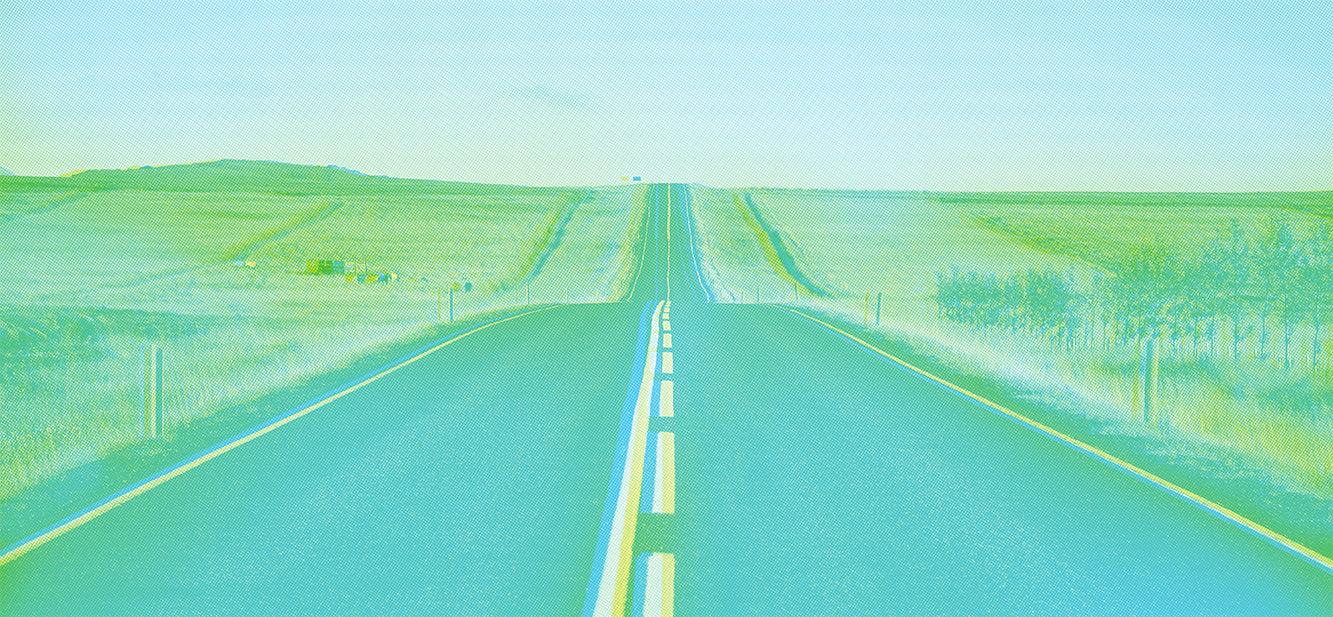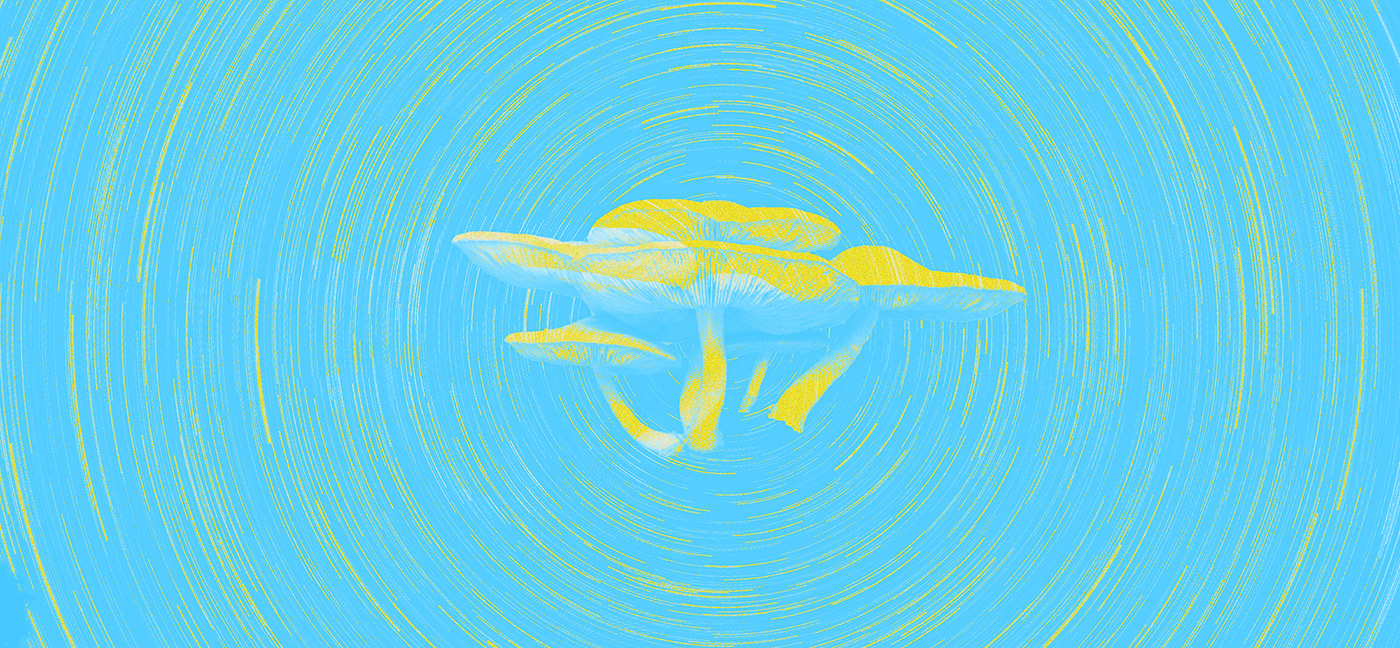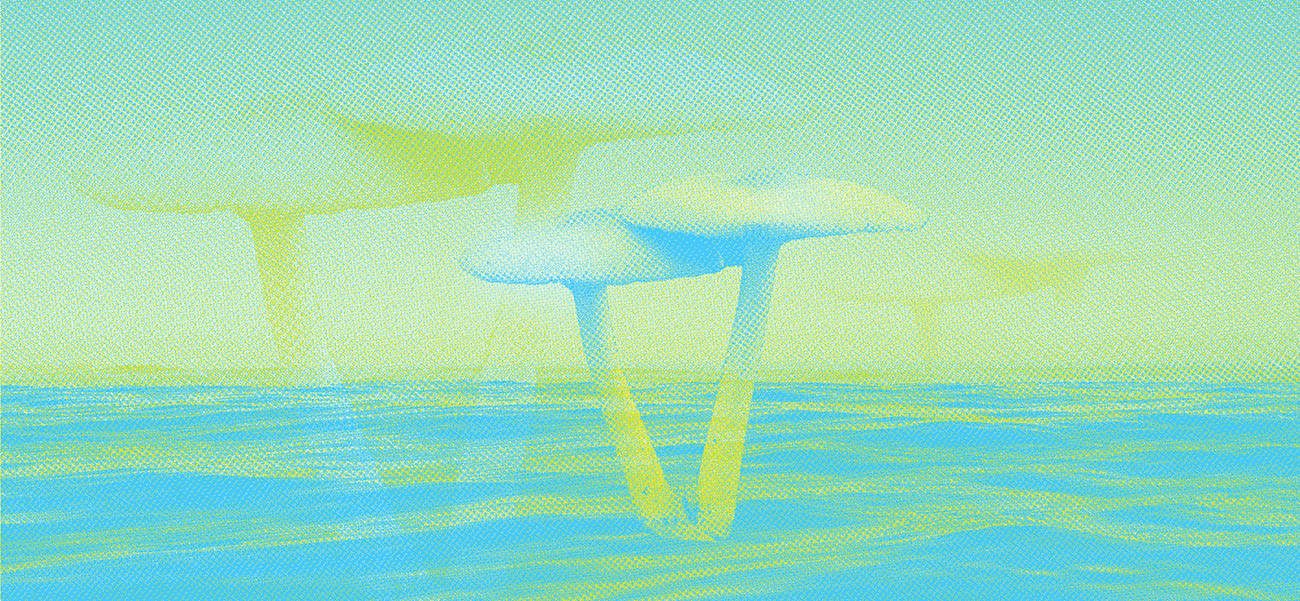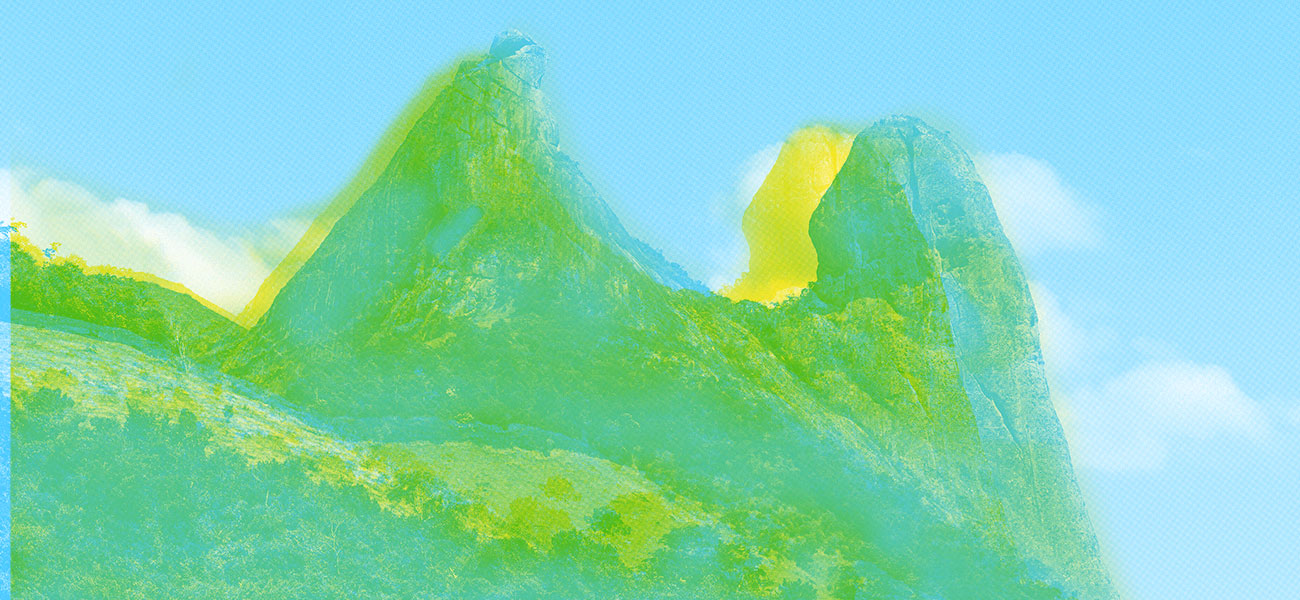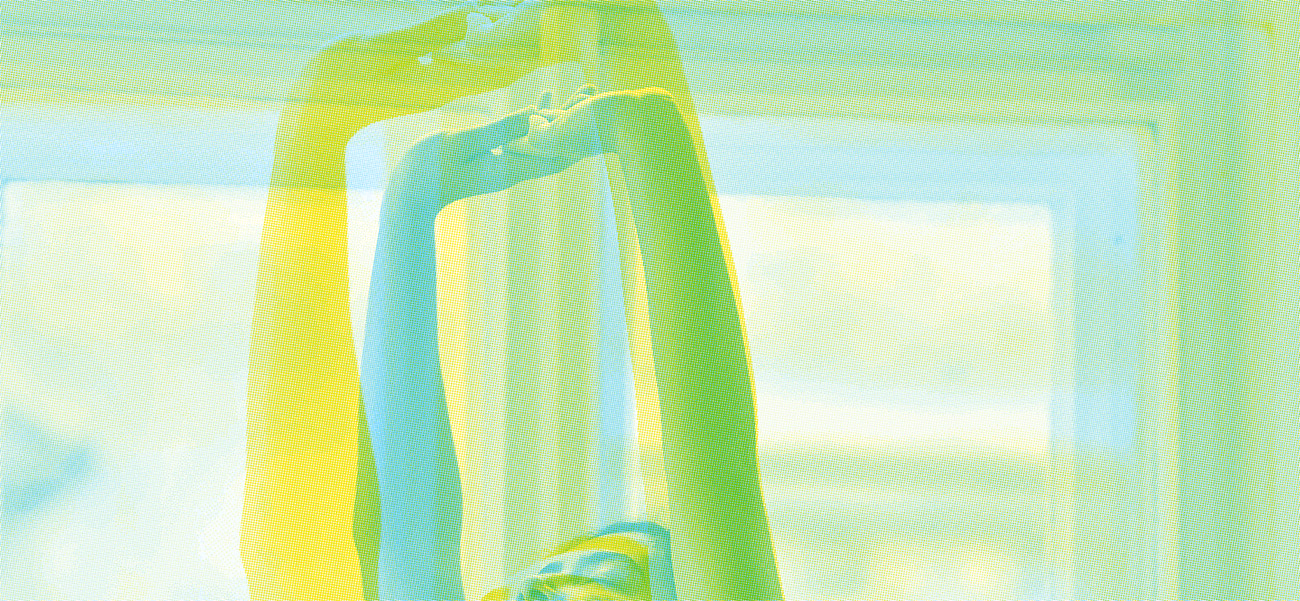#101 #corrinaallenkiersons #explore #fieldwork #science
Everything you need to know about reishi mushrooms
The history of reishi mushrooms dates back so far as to almost make the fungi seem legendary. Indeed, the “mushroom of immortality” has been revered for its health properties in Traditional Chinese Medicine for 2,000 years. Reishi mushroom’s benefits are as wide-ranging as the mushroom’s medicinal history is long, with wellness advocates attesting to its ability to boost the immune system and even fight cancer. With that kind of reputation, it’s no wonder that the reishi mushroom accounts for a full two percent of dietary supplement sales worldwide.
Get to know the mighty reishi mushroom
Called reishi in Japanese and lingzhi in Chinese, this saprophytic and parasitic fungus makes its home on deciduous hardwood trees, primarily oak and maple. It can be found in both Europe and North America but most common in Asia, preferring a subtropical, temperate climate. Commercially, reishi mushrooms can be cultivated on wood chips, logs or sawdust but wild reishi are rare — out of every 10,000 hardwood trees, just two or three will be found to have the mushrooms growing on them.
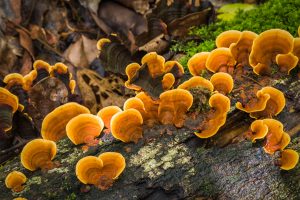
Reishi mushrooms are identified by their kidney-shaped cap which grows horizontally from its tree host on a short to nearly non-existent stem. Unlike most mushrooms, the reishi has pores instead of gills on the underside of its shiny red-orange lacquered cap. Reishi mushrooms reproduce annually on the same spot until they’ve used up all the nutrients of the tree or log they’re sprouting from and can grow to be as large 12 inches in diameter. In addition to their distinctive appearance (bonus: reishi mushrooms have no poisonous twins) they also have a distinctive odour, similar to fallen, decaying leaves.
Why add reishi mushrooms to your diet?
In the form of either reishi powder or reishi tea (since the mushroom itself, particularly red reishi, isn’t terribly palatable), ancient practitioners of Traditional Chinese Medicine have used this mushroom for the purpose of improving memory, preventing senility and increasing virility. It has also long been associated with heart health, lung health and longevity. According to the State Pharmacopoeia of the People’s Republic of China reishi benefits include “relief of cough and asthma, and is recommended for dizziness, insomnia, palpitation, and shortness of breath.”
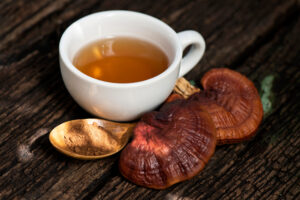
Contemporarily, reishi mushroom tea and reishi mushroom powder are recommended for those looking to lower stress levels, increase energy, boost the immune system and improve cardiovascular health. “Reishi by itself can be a bit more difficult, taste and potency wise,” said Shizu Okusa, founder of the nutraceutical company Apothékary in an interview with The New York Times. Okusa blends her reishi powders with ashwagandha root to promote anti-inflammation.
Modern scientific studies have focussed on reishi’s efficacy in treating or aiding in the treatment of cancer. One clinical trial in New Zealand indicated that reishi mushroom molecules can stimulate activity in a certain kind of infection-fighting white blood cell beneficial in combating cancers. A 2011 study out of China showed benefits for breast cancer survivors who reported that taking reishi supplements reduced levels of fatigue and increased overall well-being. Finally, there is early evidence that reishi mushrooms have the potential to act as a cancer-preventing medicine, though further and more extensive studies are needed.
Superfood supplement
The secret behind reishi’s superfood superpowers are its high levels of beta-glucans, discovered by Japanese and Chinese scientists in the 1970s. Beta-glucans activate the immune-boosting power mushrooms like reishi are known for. Uniquely, these specific mushrooms contain a large amount of triterpenoids credited for being analgesic, anti-inflammatory, antibacterial and antioxidant.
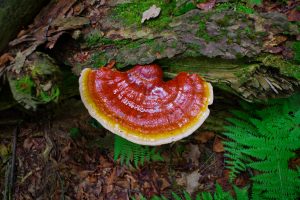
In the wellness world, this medicinal mushroom is also said to promote relaxation and fight anxiety. “Its most popular and well-known benefits are its ability to reduce stress and fatigue, and, in general, help chill you out,” Benjamin Lillibridge, founder of the non-profit Hawaii Fungi Project, said in the previously cited New York Times interview. “It’s been shown to increase deep delta-wave sleep,” he added, referring to the kind of deep sleep most beneficial to the human body.
For those interested in anti-aging treatments, reishi’s antioxidant compounds have been shown to reverse the effects of aging in laboratory tests on mice. No wonder this mushroom-with-many-names (including the ten-thousand-year mushroom and the herb of spiritual potency) is also referred to as the fungus world’s “queen healer.”
JOIN THE CONVERSATION
Whether you’re a fungi fledgling or a mature mycophile, you’re in good company. Join our community’s discussion about all things mushroom.
- This topic has 0 replies, 1 voice, and was last updated 4 years, 2 months ago by .
- You must be logged in to reply to this topic.
